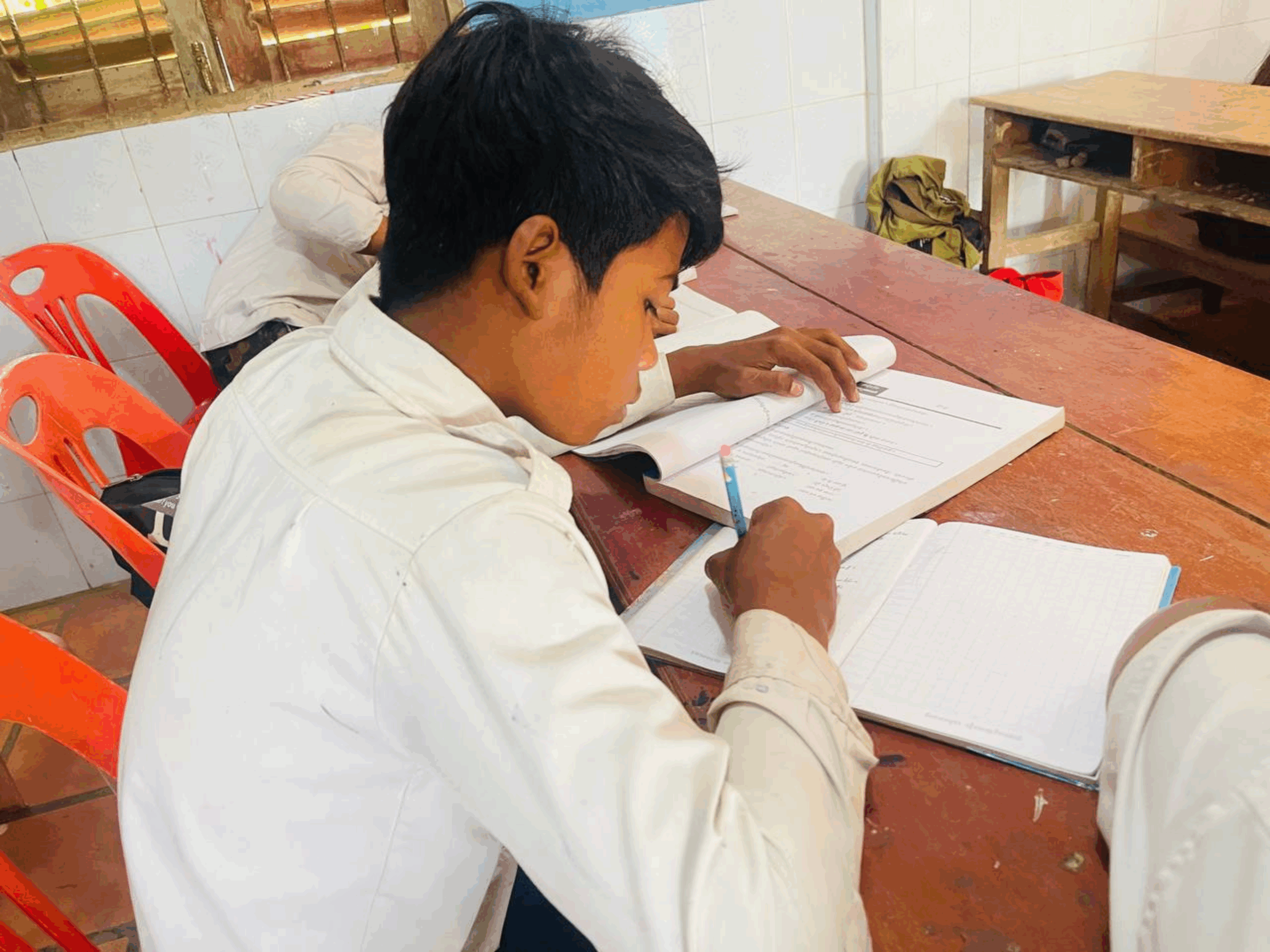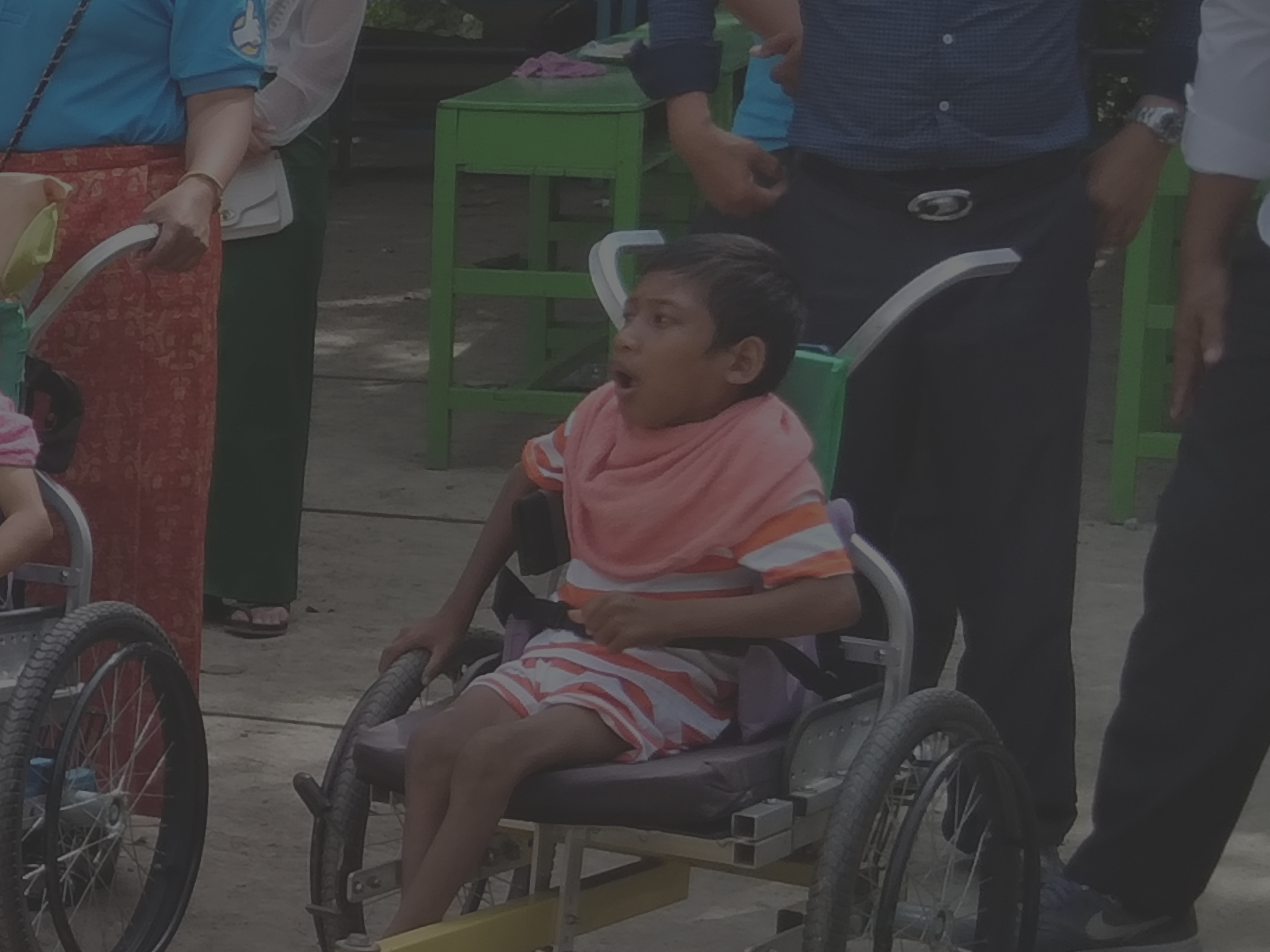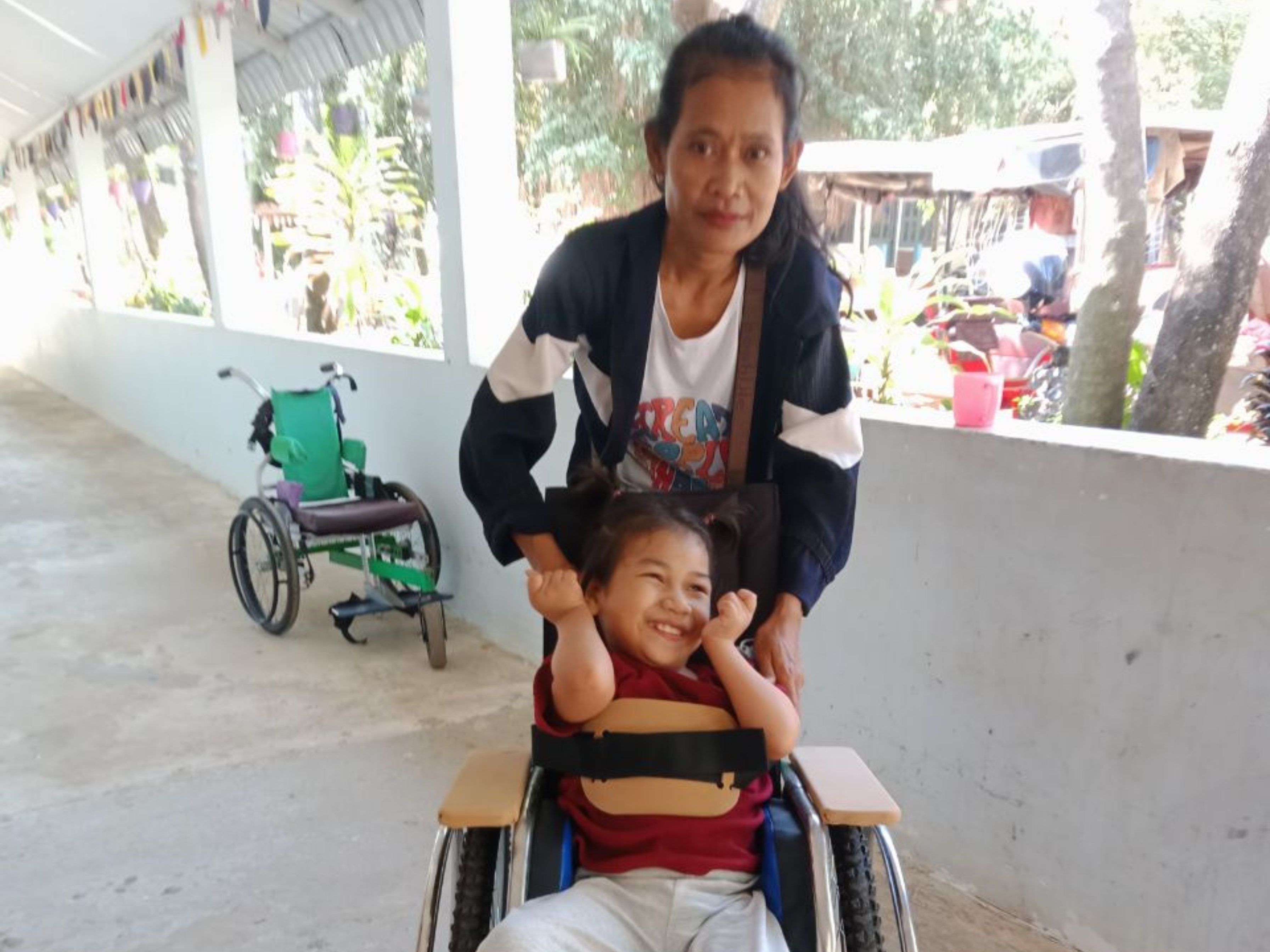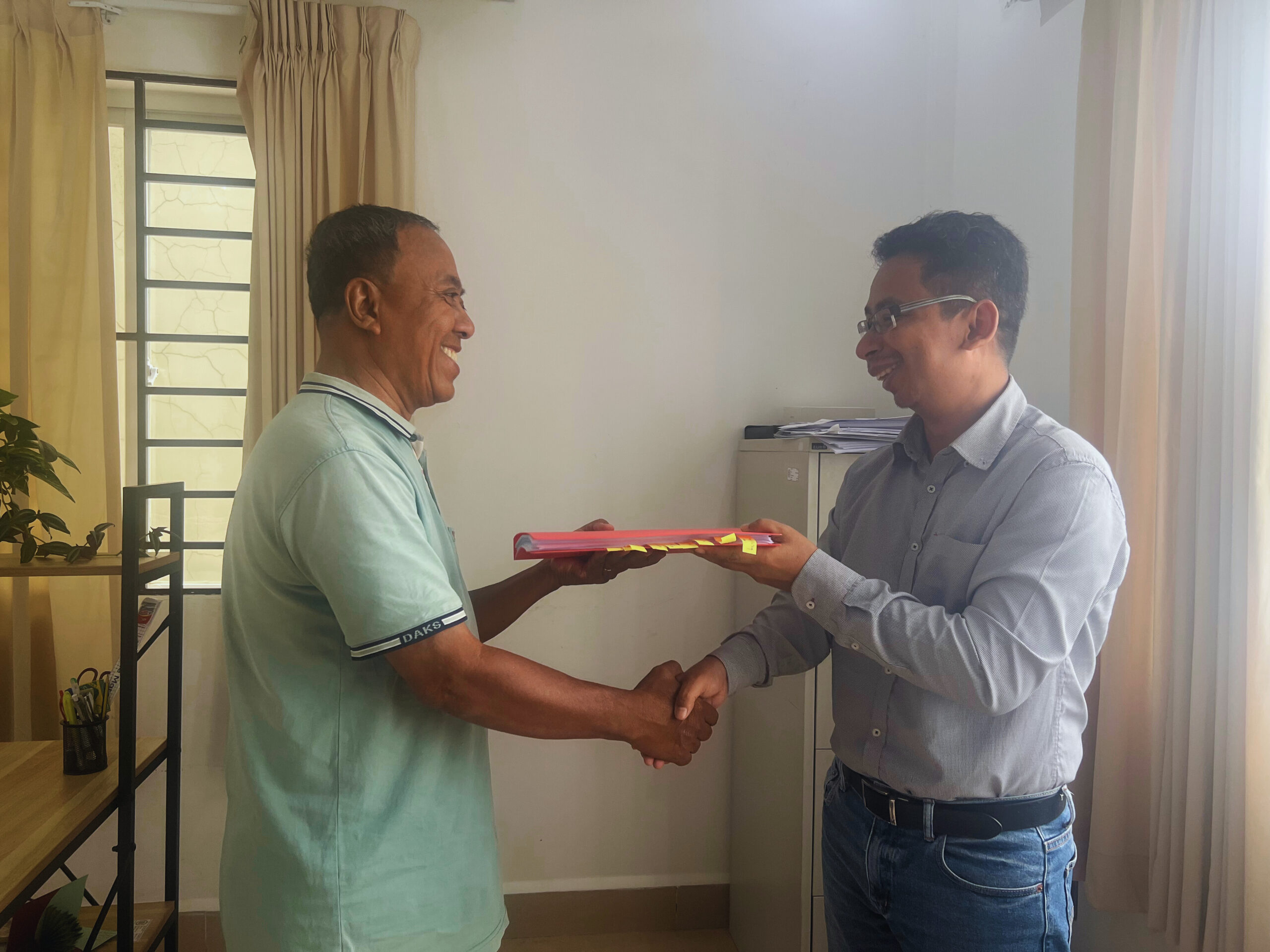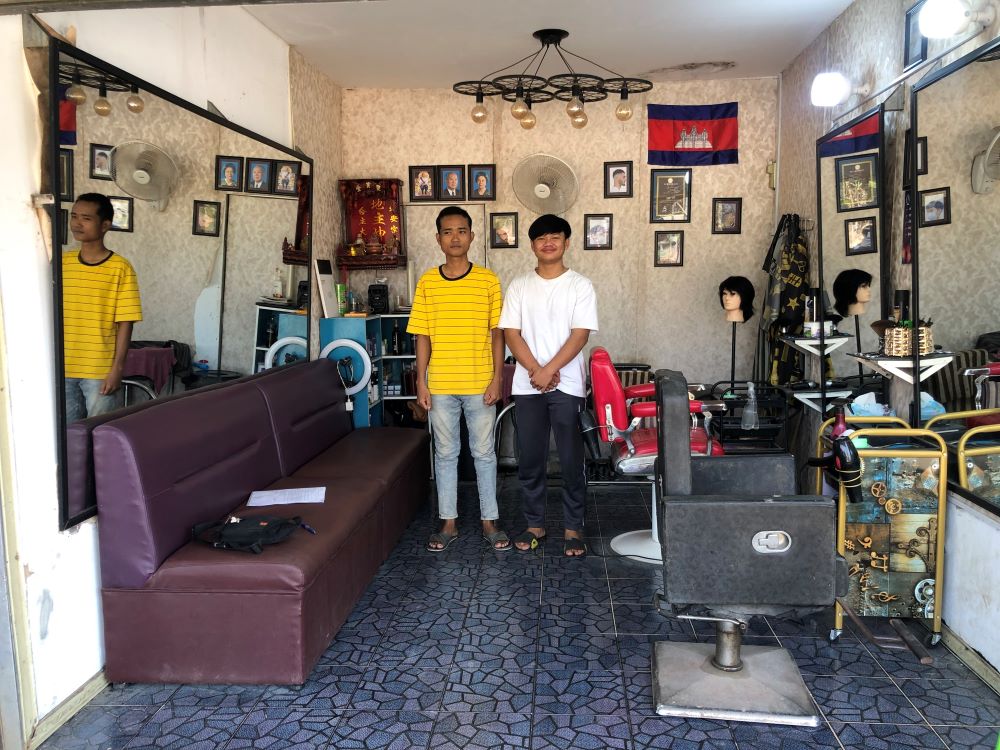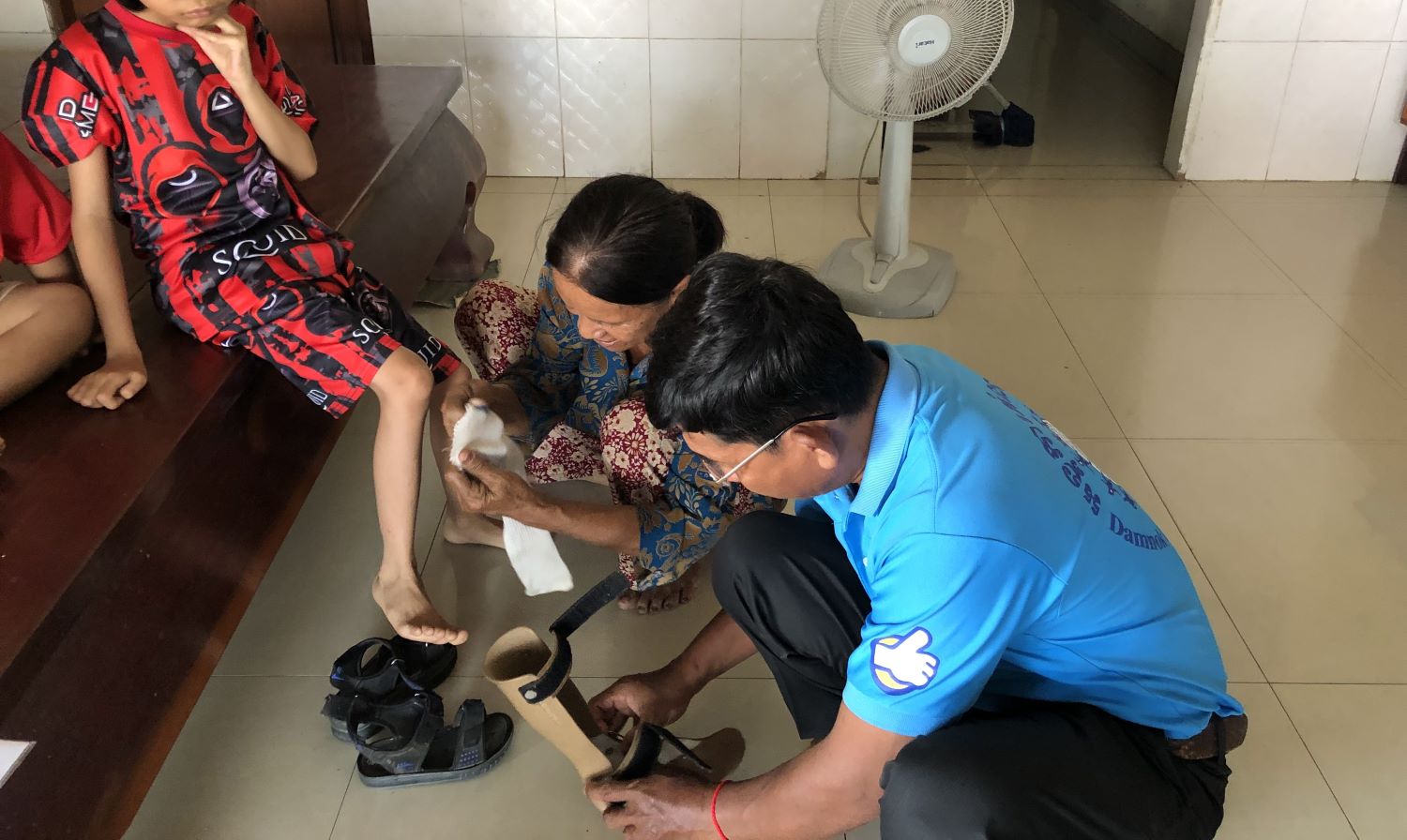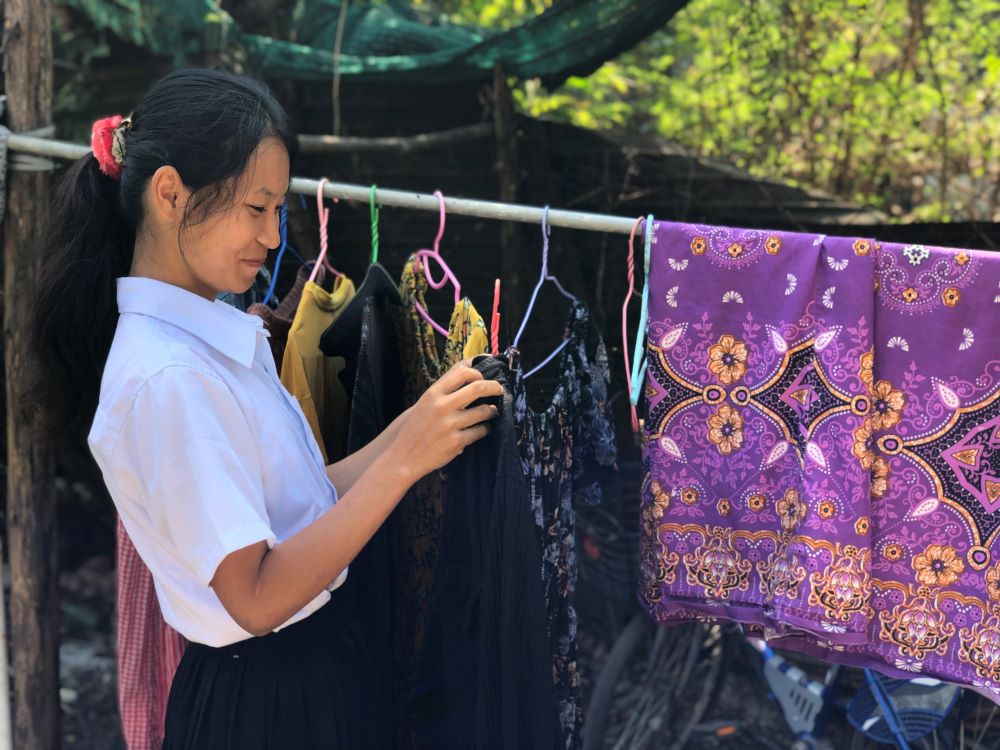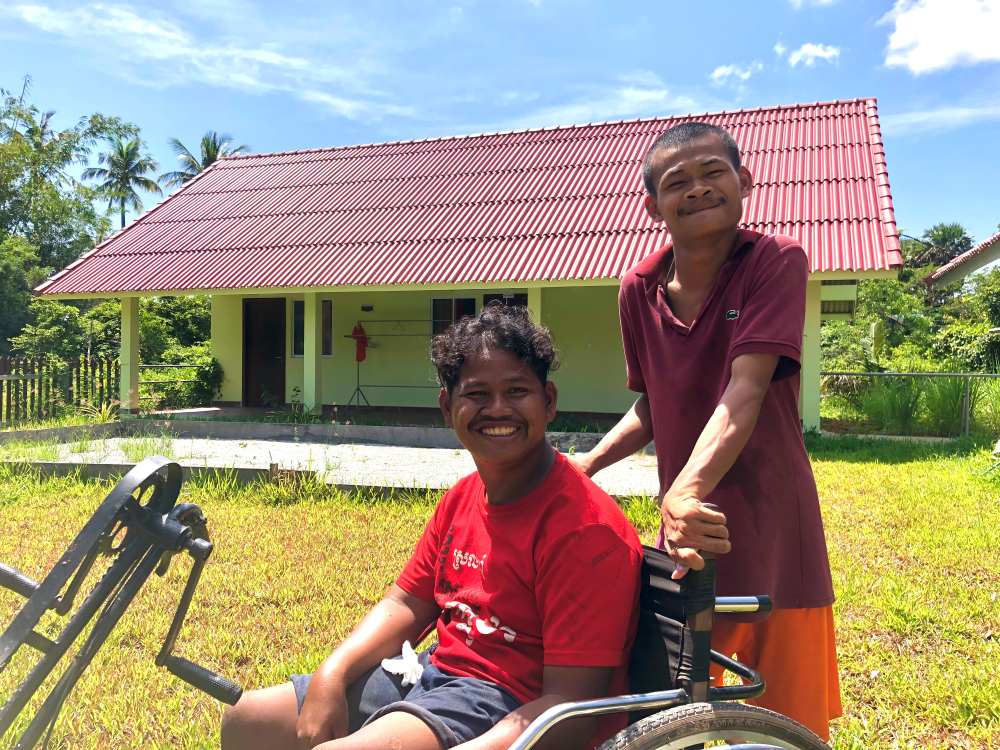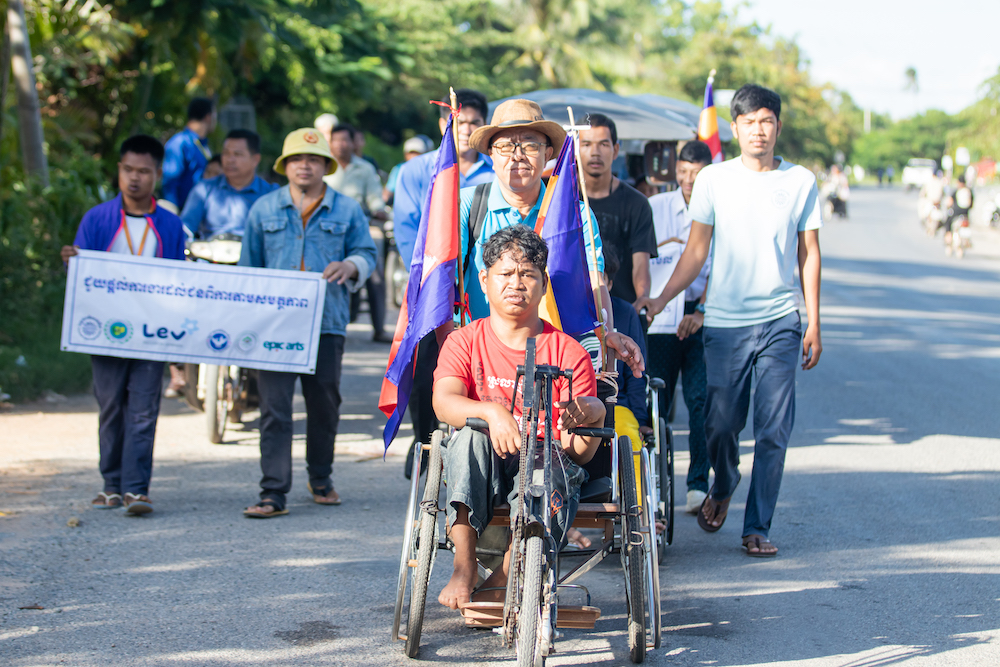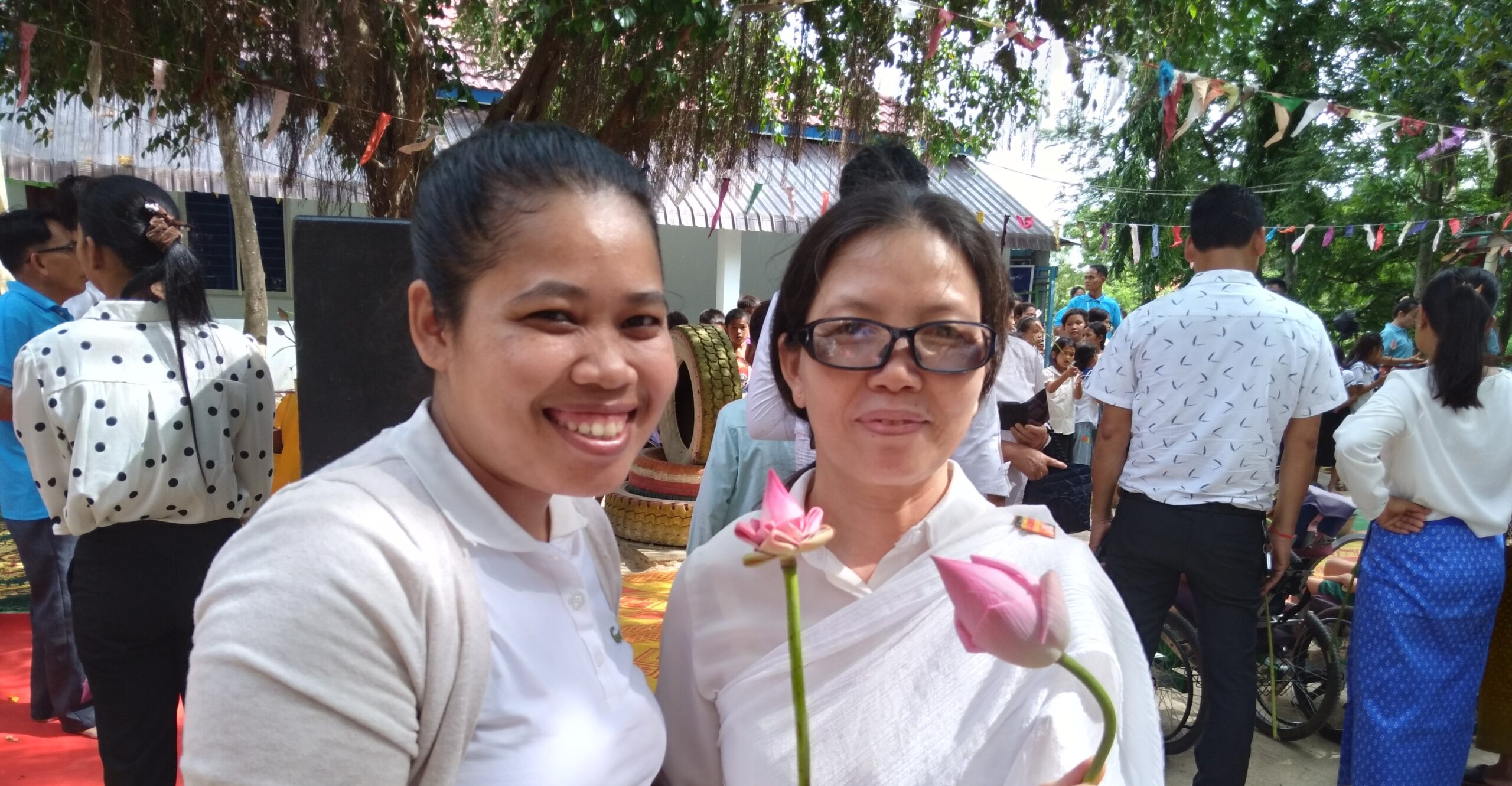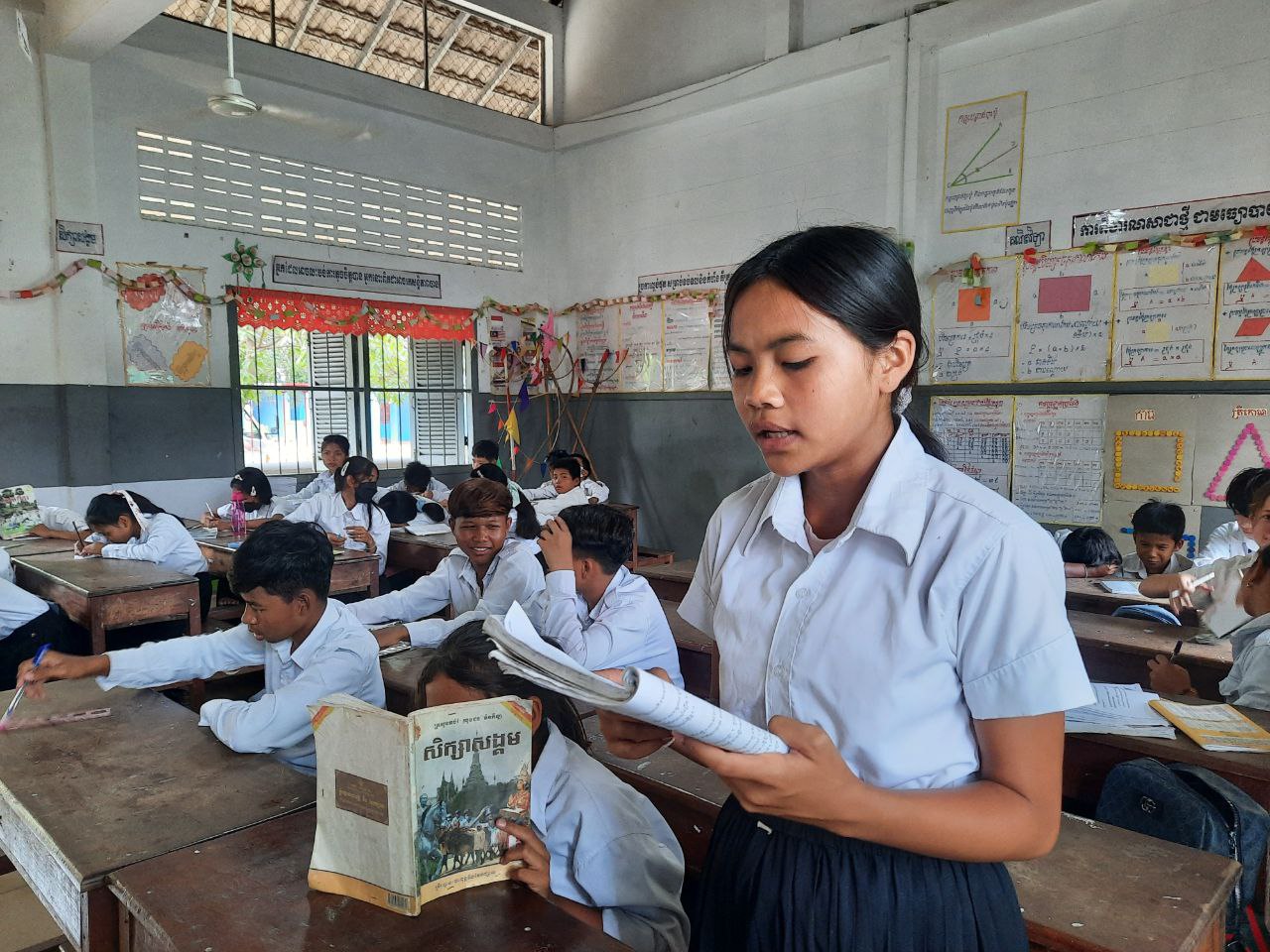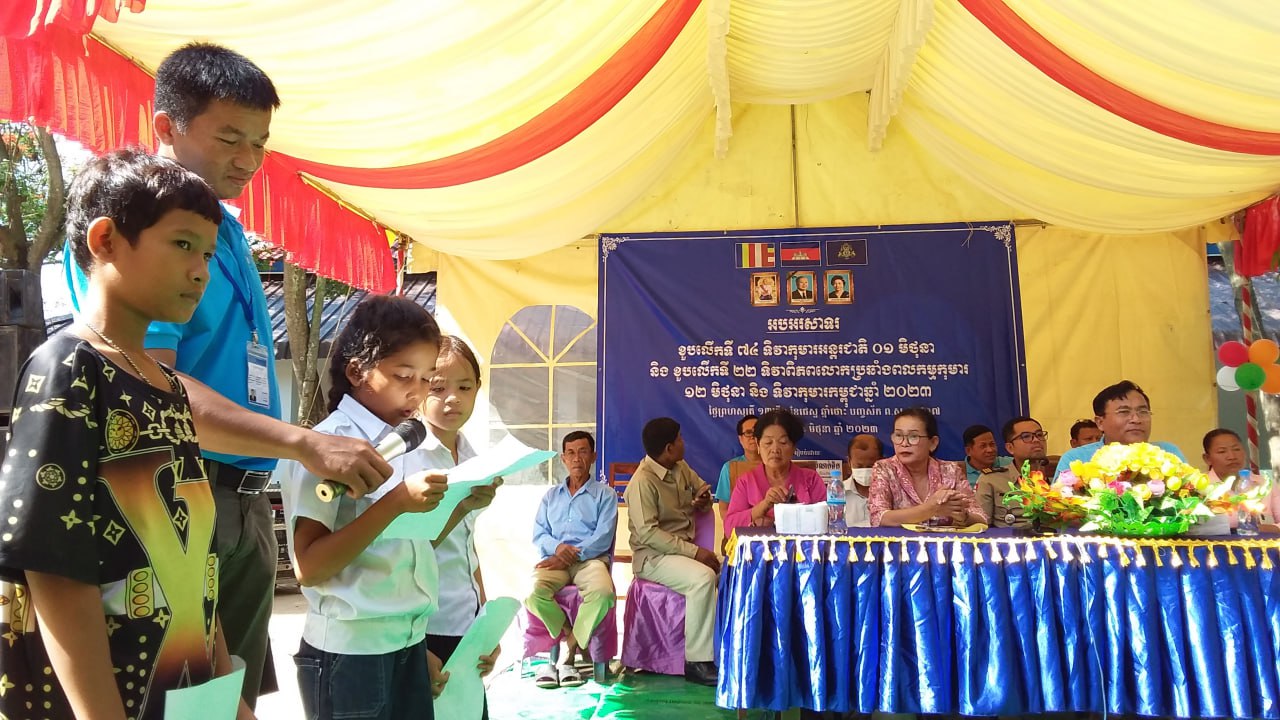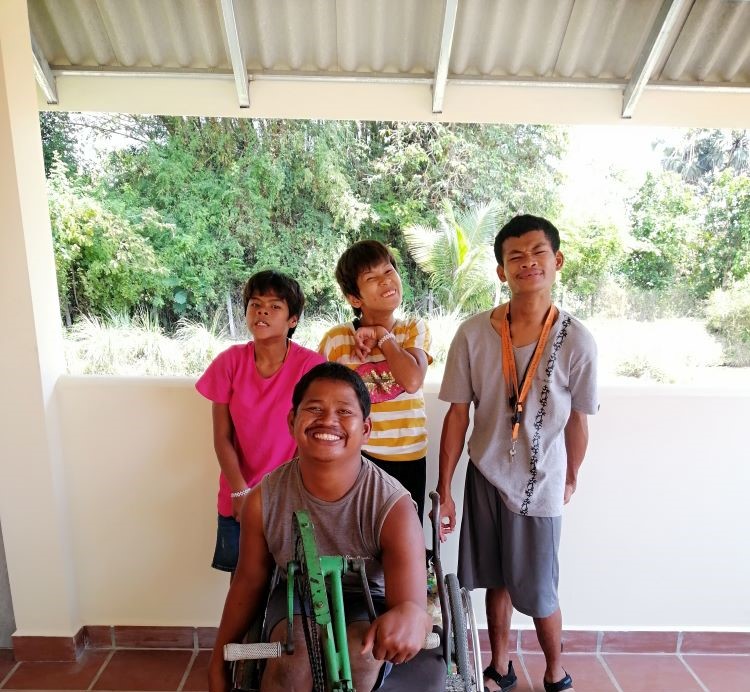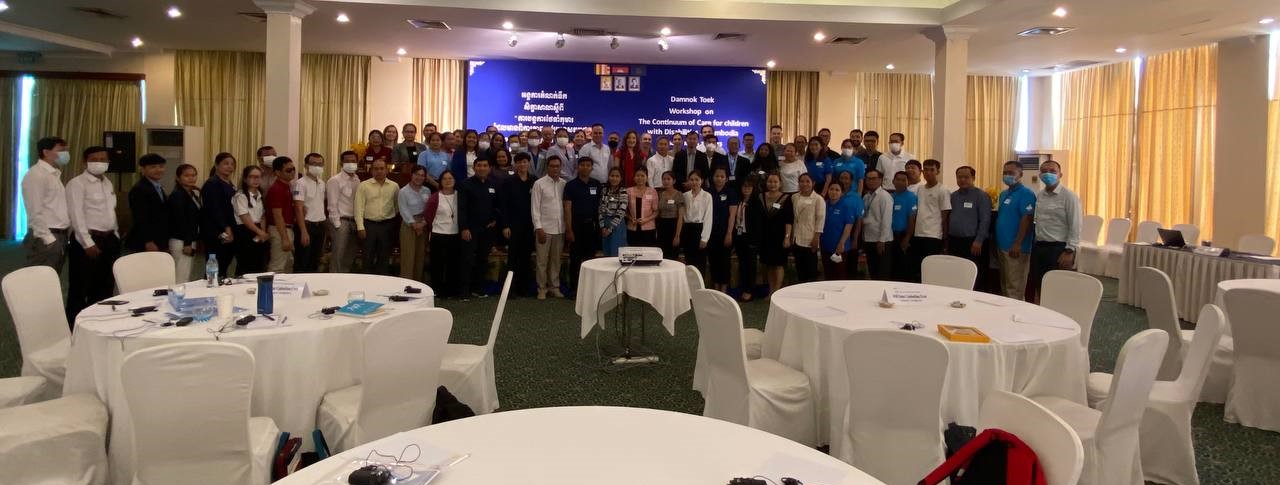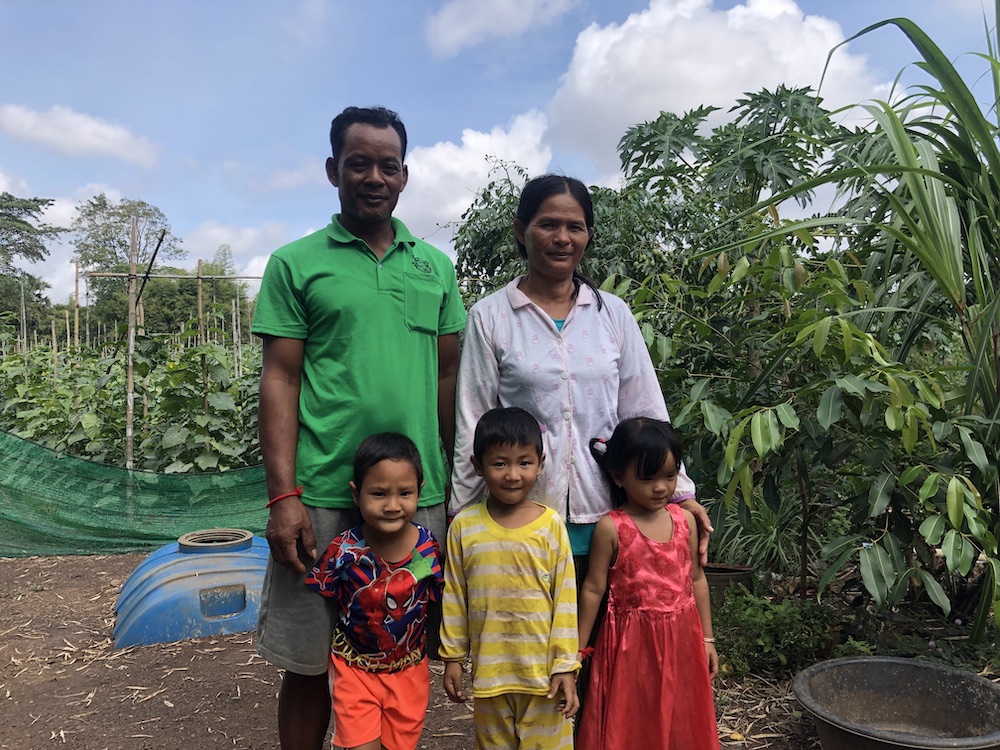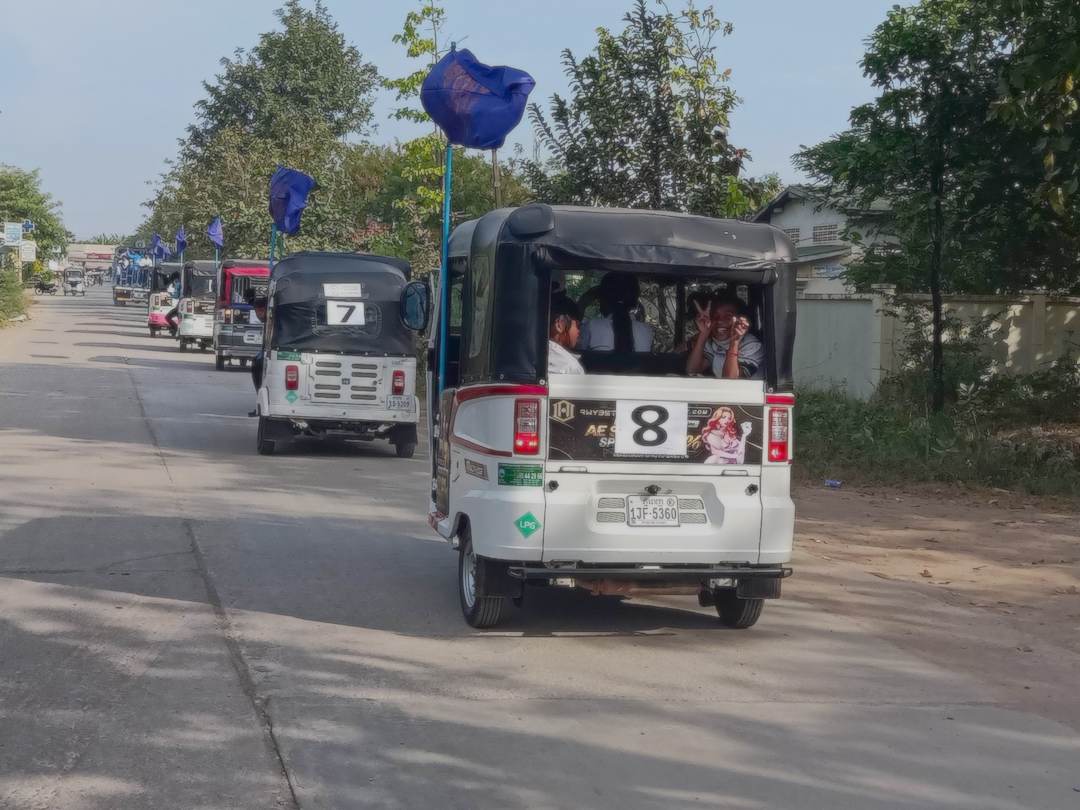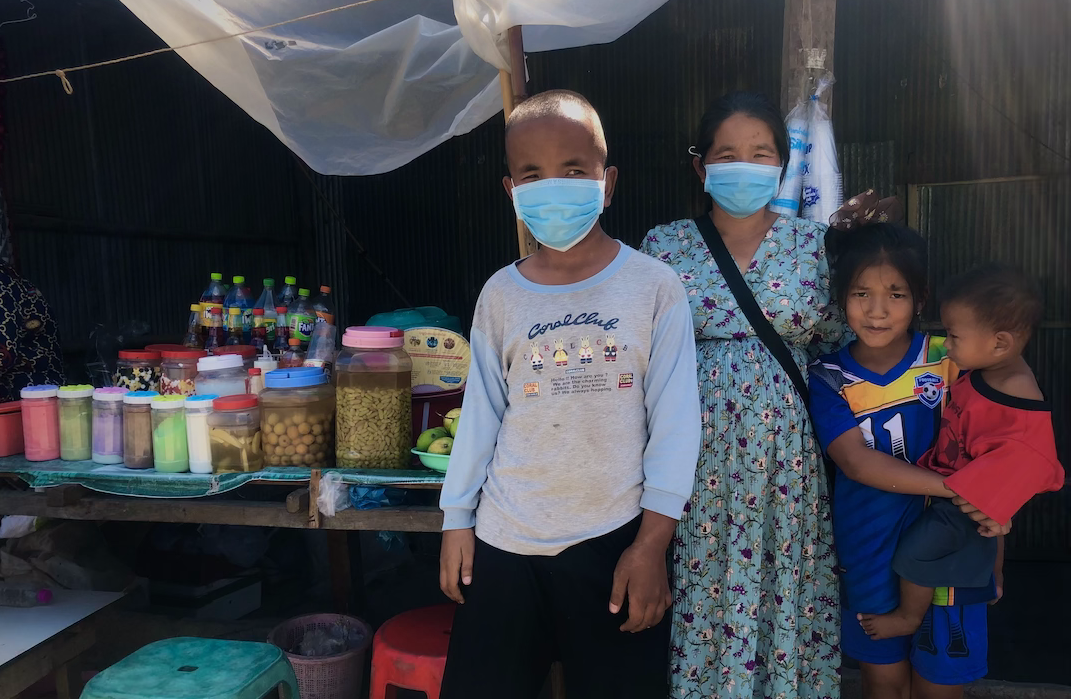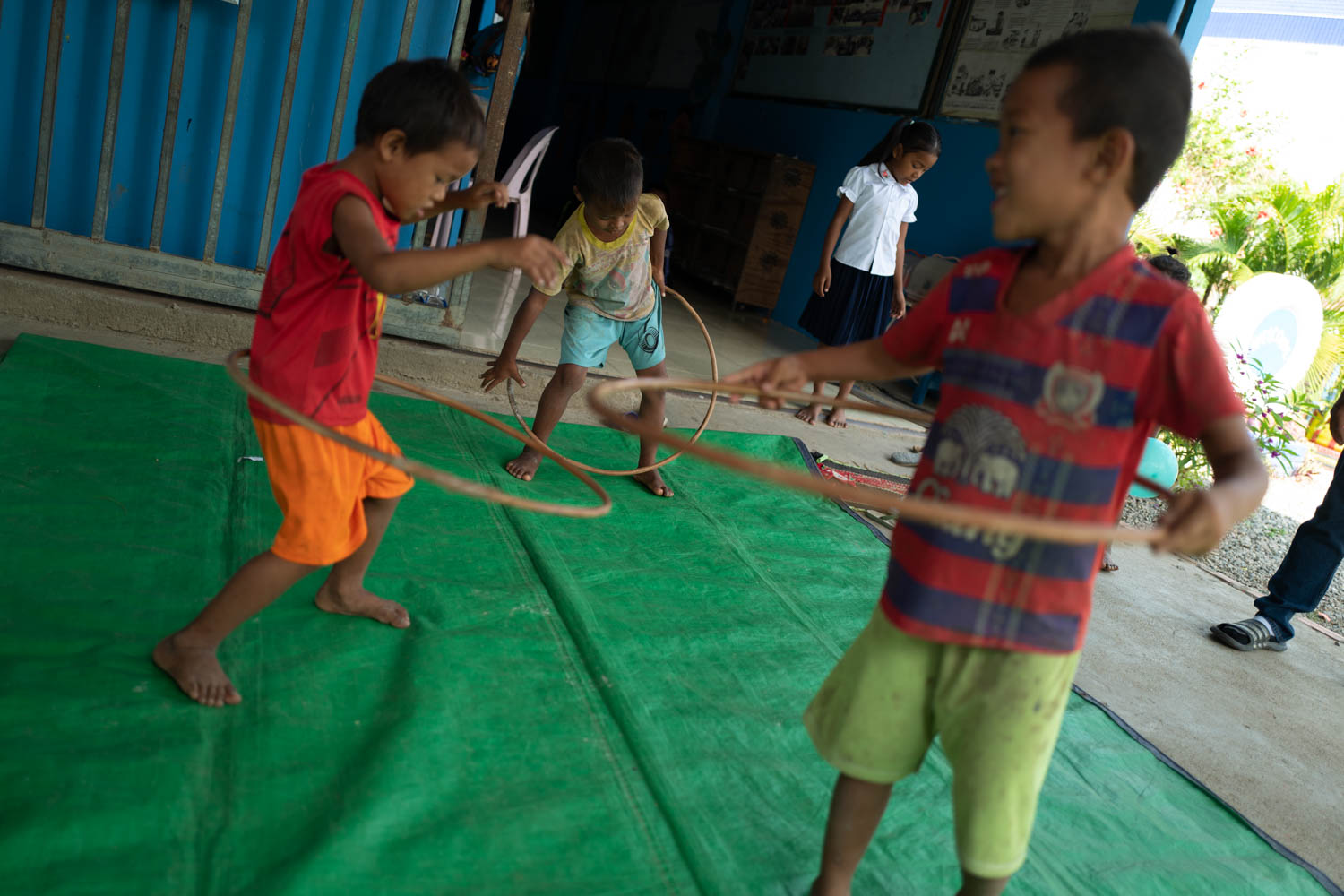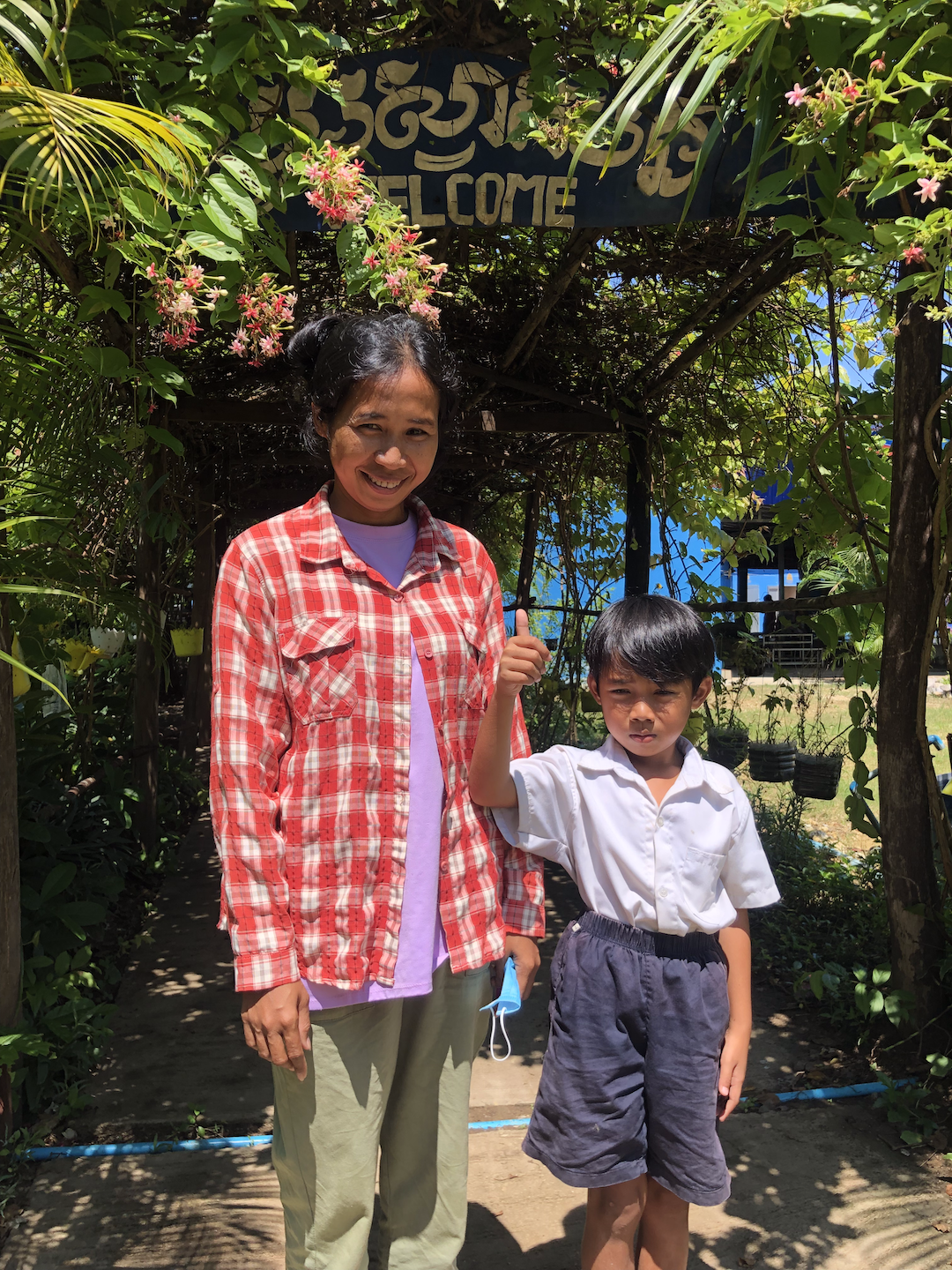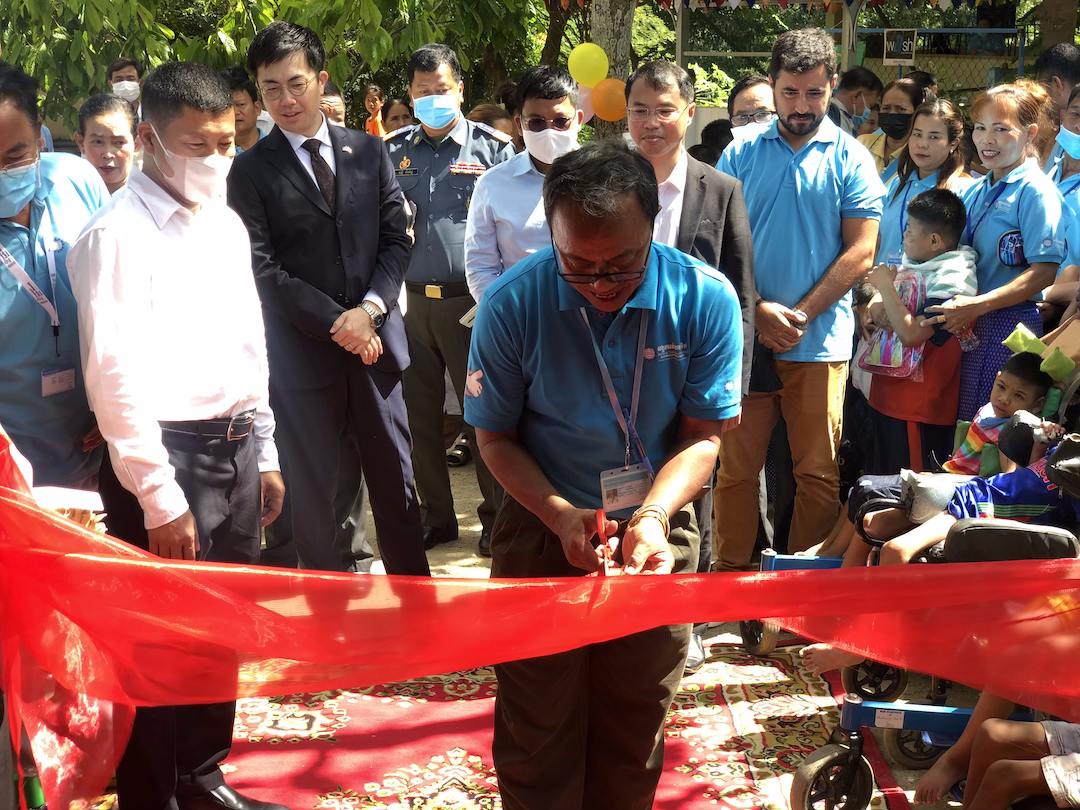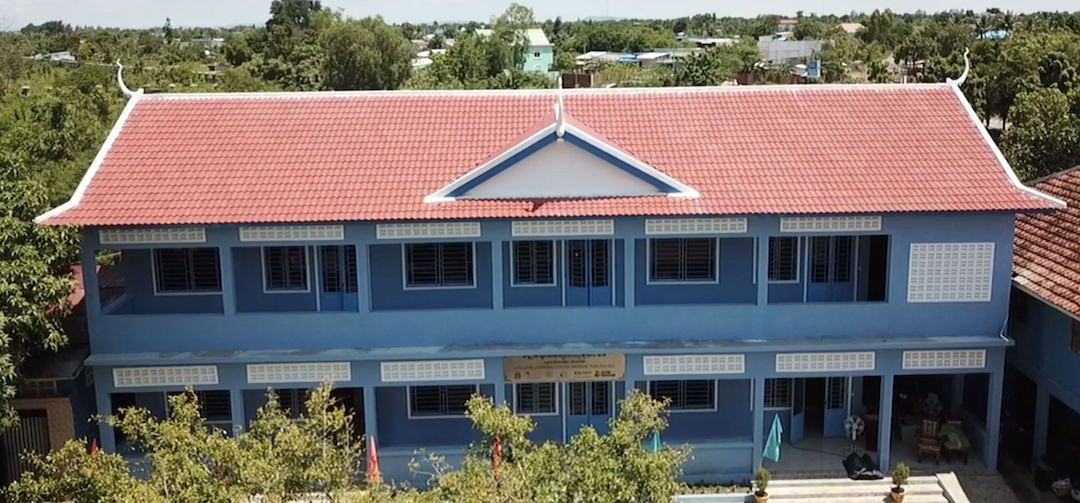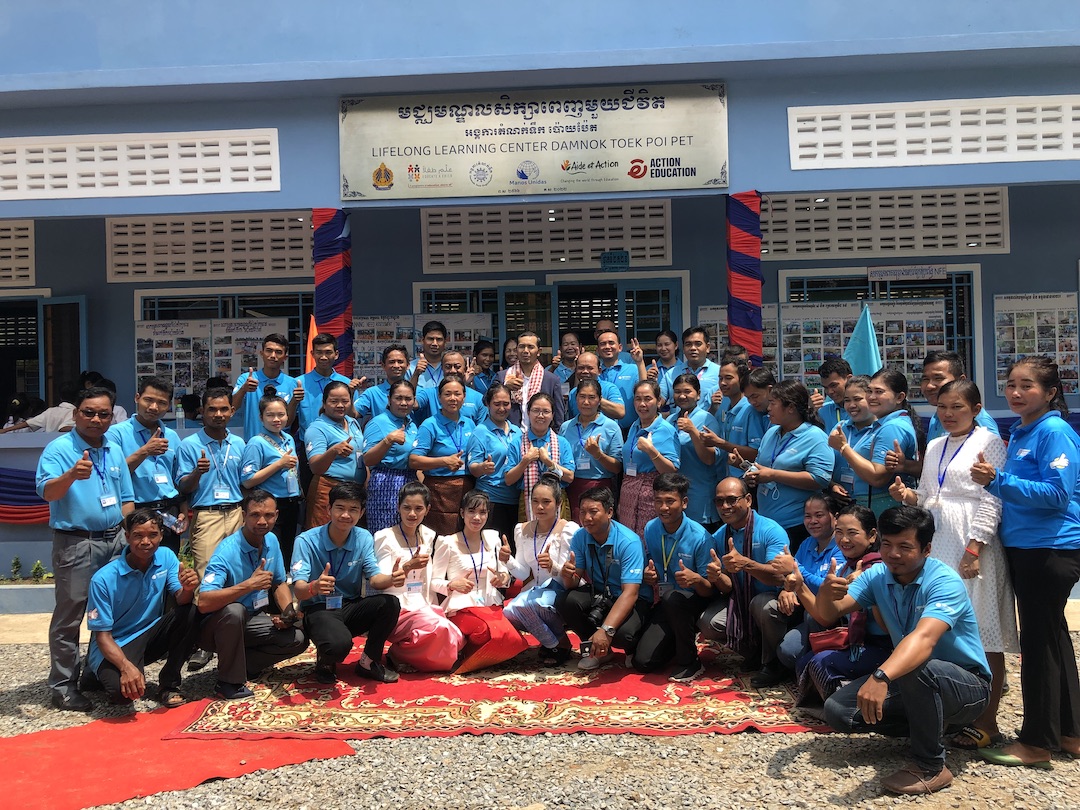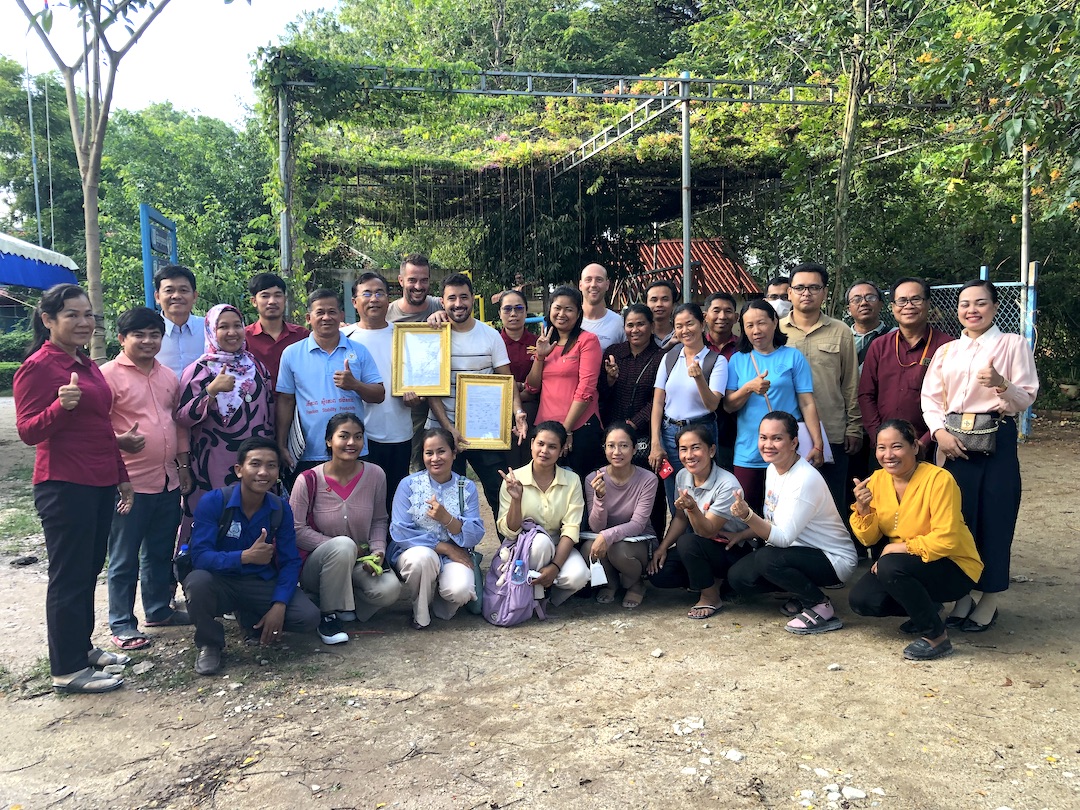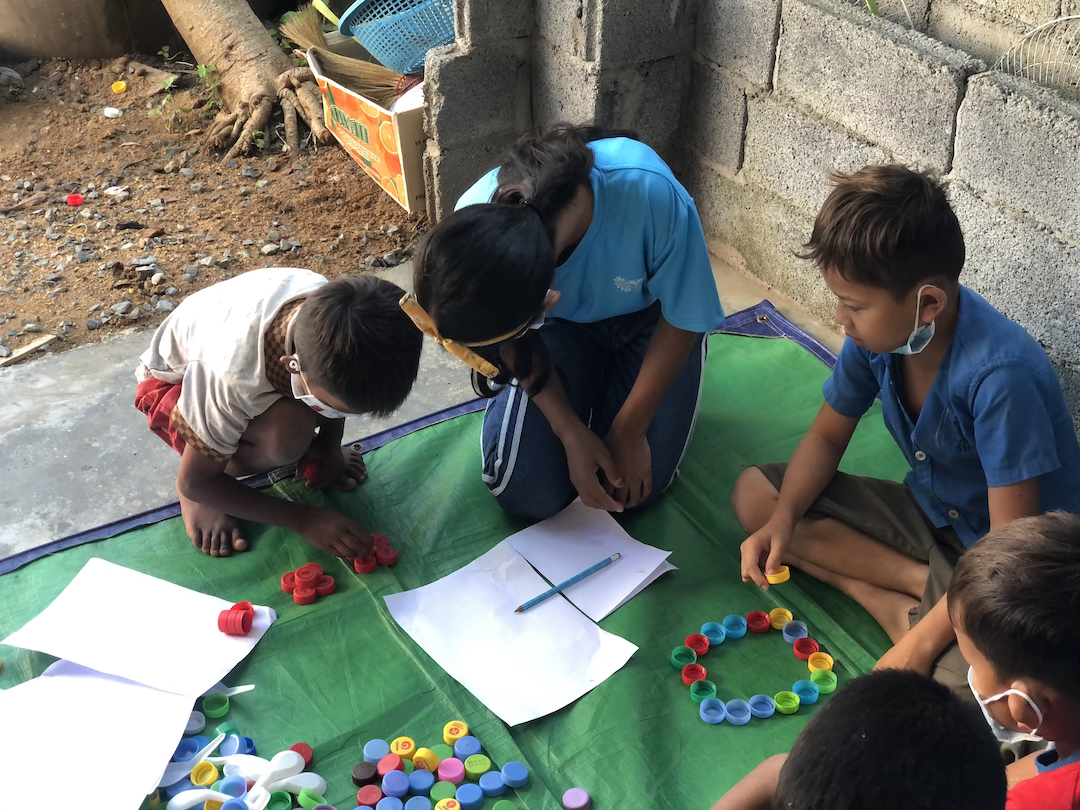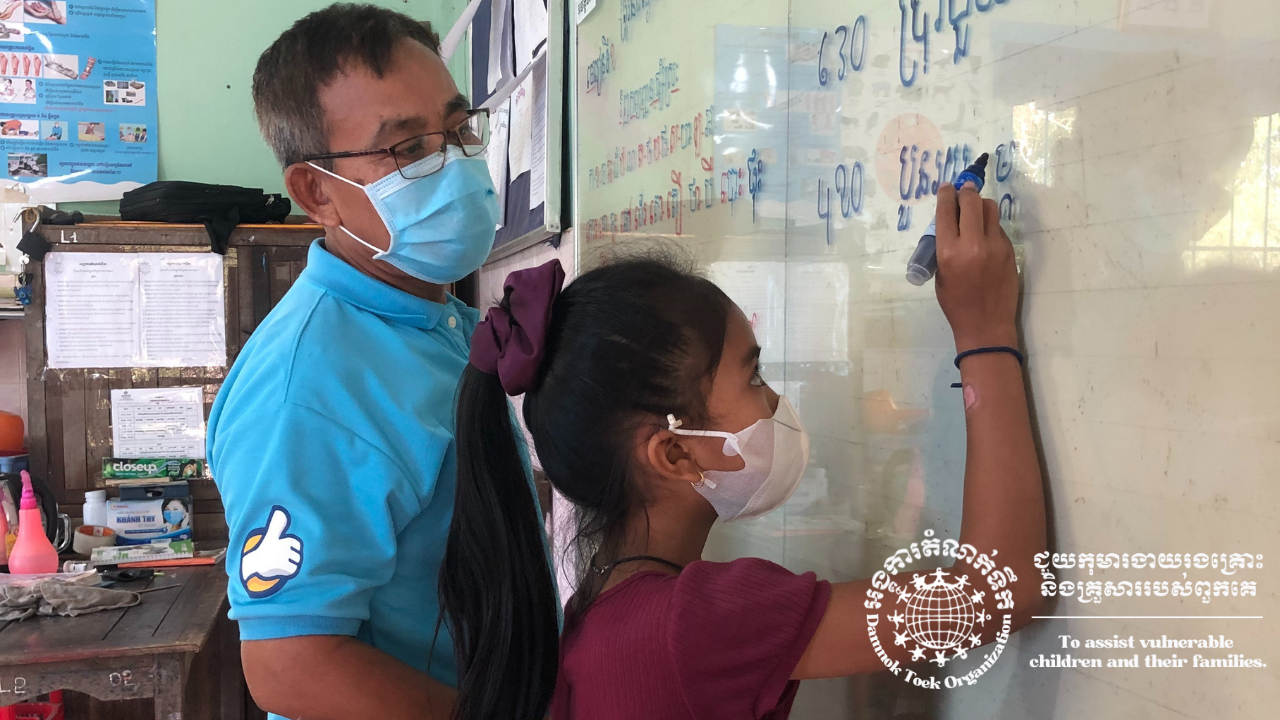Across the train tracks in Poipet less than one kilometre from the Thai border, a pregnant woman named Botun* sells chicken skewers, mangos, and an assortment of soda from a small shop made from sheets of tin. The shop doubles as her home where she lives with her husband and three young children. Botun is one of about 80 current beneficiaries of small business loans through Damnok Toek’s Income Generating Activity project.
Speaking in a plastic chair shaded from the mid-day sun, she explains how she came to own her shop. “I have had this shop now for 4 months. Before I opened this small business, I had a job working construction with my husband but then because of Covid-19, the work stopped and I lost my job so that is why I opened this shop.” Her husband remained employed but his salary was too small to support their large and growing family. Botun’s community was hard hit by Covid, not only from the virus itself but from the ramifications of lockdowns and border closures.
A City Struggles In The Wake Of Covid
Employment opportunities in Poipet are limited for under-educated and unskilled workers and consist mainly of construction, casino, and factory work. These limitations plus the allure of much higher salaries just across the border, drive many people into migrant work in Thailand. Before Covid, the process was expensive but popular and straightforward. Obtain a work permit, cross the border for work, and return to Cambodia with a decent wage. Many migrant workers would do this on a daily basis, crossing in the morning and returning in the evening.
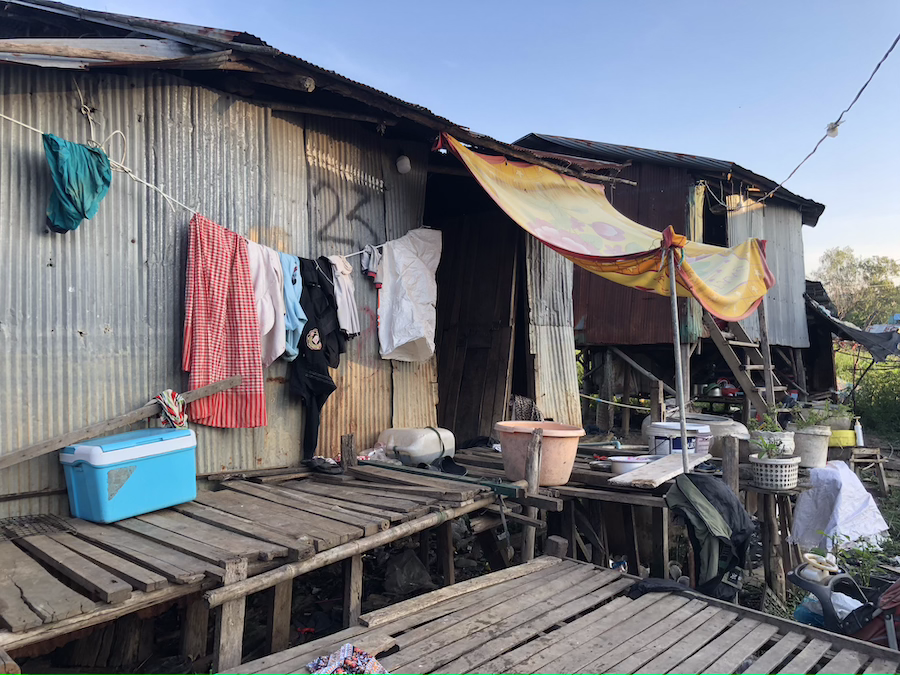
However, when the Thai-Cambodian border officially closed in 2020 to curb the spread of Covid-19, migrant workers found themselves in a precarious situation. With casinos and factories closed and construction projects stalled in Poipet, many people’s only option for work involved migrating to Thailand. However, with official borders closed, even workers with proper documentation were forced to turn to illegal methods to enter the country, which resulted in a massive spike in human trafficking cases. Border police were strict; brokers hired to bring people across were expensive and unreliable; and the journey through land-mine-littered forests was dangerous. For families like Botun’s, herself pregnant and whose eldest son has an intellectual disability, migrating to Thailand was not an option. She decided to stay in Poipet and find another solution.
Assistance In Many Forms
Botun was already very familiar with Damnok Toek, as are many residents of Poipet. “I was in Damnok Toek’s school (Non-Formal Education) until grade 5. I was living with my parents at that time but since I was the oldest child, I had to drop out of school to help support my family when my uncle got sick.” Later, she also received assistance from Damnok Toek as a new mother through the Outreach program. However, it was through speaking with a neighbour that she learned about the employment opportunities DT offered through the Future’s Office in town. Intrigued, she found the office and inquired about the possibility of a small business loan.
The Future Office (FO) is a small building located in the centre of town; however, it is one of the most popular of DT’s projects in Poipet. The FO offers a wide array of services to people in the community including resume building, apprenticeships and internships, job placement, and the Income Generating Activity (IGA) project.
IGA became particularly popular during Covid since job placement and internships were largely unavailable. Through this project, beneficiaries work with FO staff to create a sustainable business plan. The FO offers business management classes for those without experience. From there, they receive a loan to establish a small business. FO staff determine the amount of the loan and the method for paying it back based on the beneficiary’s specific circumstances.
Small Business Makes a Big Difference
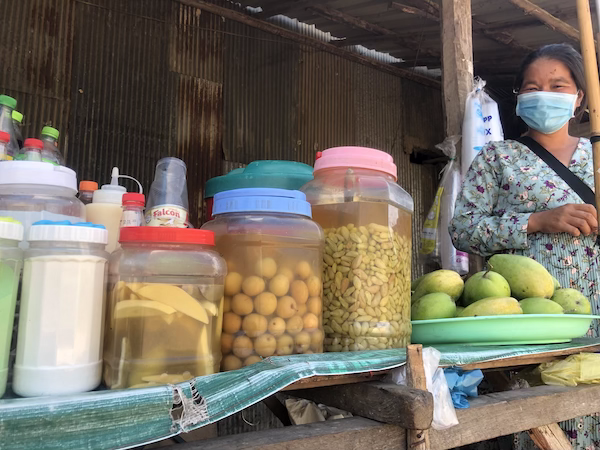
For Botun, the first few months were great for business. She was easily able to make the pre-determined $20/ month payments on her business. However, the spread of new Covid variants has reignited fear in the community and people are not coming out as much. These days, she makes about 10,000 riel per day, about $2.50. “It is not much, but it is enough to feed my family.”
Botun’s eldest child attends day classes at Damnok Toek’s Drop-In Centre so she receives additional support in the form of food supplies. Since she is pregnant, she will receive medical care and formula for her newborn through the Damnok Toek Outreach program. Botun is grateful for the assistance and is an advocate for DT programs in her community. “I would advise families to understand the support and opportunities Damnok Toek offers,” she says, “and I would just like to say thank you to Damnok Toek for supporting me because today I have a small business even though it is a small amount, I have food through the small business and money to feed my children.”
*Name has been changed to protect anonymity.
